Sprint - Nextel 2015 Annual Report Download - page 10
Download and view the complete annual report
Please find page 10 of the 2015 Sprint - Nextel annual report below. You can navigate through the pages in the report by either clicking on the pages listed below, or by using the keyword search tool below to find specific information within the annual report.-
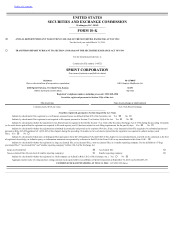 1
1 -
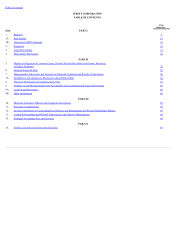 2
2 -
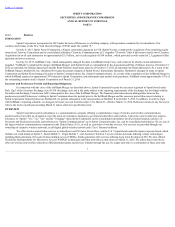 3
3 -
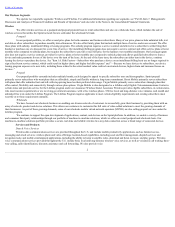 4
4 -
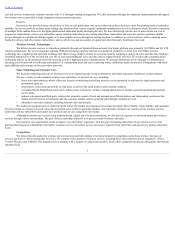 5
5 -
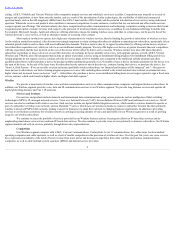 6
6 -
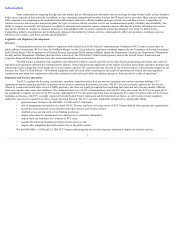 7
7 -
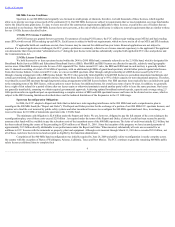 8
8 -
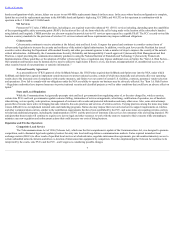 9
9 -
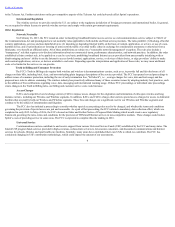 10
10 -
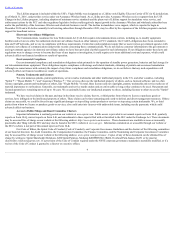 11
11 -
 12
12 -
 13
13 -
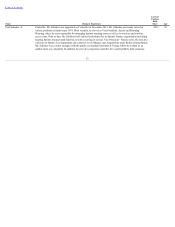 14
14 -
 15
15 -
 16
16 -
 17
17 -
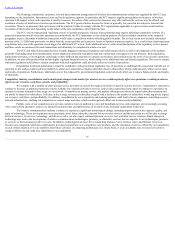 18
18 -
 19
19 -
 20
20 -
 21
21 -
 22
22 -
 23
23 -
 24
24 -
 25
25 -
 26
26 -
 27
27 -
 28
28 -
 29
29 -
 30
30 -
 31
31 -
 32
32 -
 33
33 -
 34
34 -
 35
35 -
 36
36 -
 37
37 -
 38
38 -
 39
39 -
 40
40 -
 41
41 -
 42
42 -
 43
43 -
 44
44 -
 45
45 -
 46
46 -
 47
47 -
 48
48 -
 49
49 -
 50
50 -
 51
51 -
 52
52 -
 53
53 -
 54
54 -
 55
55 -
 56
56 -
 57
57 -
 58
58 -
 59
59 -
 60
60 -
 61
61 -
 62
62 -
 63
63 -
 64
64 -
 65
65 -
 66
66 -
 67
67 -
 68
68 -
 69
69 -
 70
70 -
 71
71 -
 72
72 -
 73
73 -
 74
74 -
 75
75 -
 76
76 -
 77
77 -
 78
78 -
 79
79 -
 80
80 -
 81
81 -
 82
82 -
 83
83 -
 84
84 -
 85
85 -
 86
86 -
 87
87 -
 88
88 -
 89
89 -
 90
90 -
 91
91 -
 92
92 -
 93
93 -
 94
94 -
 95
95 -
 96
96 -
 97
97 -
 98
98 -
 99
99 -
 100
100 -
 101
101 -
 102
102 -
 103
103 -
 104
104 -
 105
105 -
 106
106 -
 107
107 -
 108
108 -
 109
109 -
 110
110 -
 111
111 -
 112
112 -
 113
113 -
 114
114 -
 115
115 -
 116
116 -
 117
117 -
 118
118 -
 119
119 -
 120
120 -
 121
121 -
 122
122 -
 123
123 -
 124
124 -
 125
125 -
 126
126 -
 127
127 -
 128
128 -
 129
129 -
 130
130 -
 131
131 -
 132
132 -
 133
133 -
 134
134 -
 135
135 -
 136
136 -
 137
137 -
 138
138 -
 139
139 -
 140
140 -
 141
141 -
 142
142 -
 143
143 -
 144
144 -
 145
145 -
 146
146 -
 147
147 -
 148
148 -
 149
149 -
 150
150 -
 151
151 -
 152
152 -
 153
153 -
 154
154 -
 155
155 -
 156
156 -
 157
157 -
 158
158 -
 159
159 -
 160
160 -
 161
161 -
 162
162 -
 163
163 -
 164
164 -
 165
165 -
 166
166 -
 167
167 -
 168
168 -
 169
169 -
 170
170 -
 171
171 -
 172
172 -
 173
173 -
 174
174 -
 175
175 -
 176
176 -
 177
177 -
 178
178 -
 179
179 -
 180
180 -
 181
181 -
 182
182 -
 183
183 -
 184
184 -
 185
185 -
 186
186 -
 187
187 -
 188
188 -
 189
189 -
 190
190 -
 191
191 -
 192
192 -
 193
193 -
 194
194 -
 195
195 -
 196
196 -
 197
197 -
 198
198 -
 199
199 -
 200
200 -
 201
201 -
 202
202 -
 203
203 -
 204
204 -
 205
205 -
 206
206 -
 207
207 -
 208
208 -
 209
209 -
 210
210 -
 211
211 -
 212
212 -
 213
213 -
 214
214 -
 215
215 -
 216
216 -
 217
217 -
 218
218 -
 219
219 -
 220
220 -
 221
221 -
 222
222 -
 223
223 -
 224
224 -
 225
225 -
 226
226 -
 227
227 -
 228
228 -
 229
229 -
 230
230 -
 231
231 -
 232
232 -
 233
233 -
 234
234 -
 235
235 -
 236
236 -
 237
237 -
 238
238 -
 239
239 -
 240
240 -
 241
241 -
 242
242 -
 243
243 -
 244
244 -
 245
245 -
 246
246 -
 247
247 -
 248
248 -
 249
249 -
 250
250 -
 251
251 -
 252
252 -
 253
253 -
 254
254 -
 255
255 -
 256
256 -
 257
257 -
 258
258 -
 259
259 -
 260
260 -
 261
261 -
 262
262 -
 263
263 -
 264
264 -
 265
265 -
 266
266 -
 267
267 -
 268
268 -
 269
269 -
 270
270 -
 271
271 -
 272
272 -
 273
273 -
 274
274 -
 275
275 -
 276
276 -
 277
277 -
 278
278 -
 279
279 -
 280
280 -
 281
281 -
 282
282 -
 283
283 -
 284
284 -
 285
285 -
 286
286 -
 287
287 -
 288
288 -
 289
289 -
 290
290 -
 291
291 -
 292
292 -
 293
293 -
 294
294 -
 295
295 -
 296
296 -
 297
297 -
 298
298 -
 299
299 -
 300
300 -
 301
301 -
 302
302 -
 303
303 -
 304
304 -
 305
305 -
 306
306 -
 307
307 -
 308
308 -
 309
309 -
 310
310 -
 311
311 -
 312
312 -
 313
313 -
 314
314 -
 315
315 -
 316
316 -
 317
317 -
 318
318 -
 319
319 -
 320
320 -
 321
321 -
 322
322 -
 323
323 -
 324
324 -
 325
325 -
 326
326 -
 327
327 -
 328
328 -
 329
329 -
 330
330 -
 331
331 -
 332
332 -
 333
333 -
 334
334 -
 335
335 -
 336
336 -
 337
337 -
 338
338 -
 339
339 -
 340
340 -
 341
341 -
 342
342 -
 343
343 -
 344
344 -
 345
345 -
 346
346 -
 347
347 -
 348
348 -
 349
349 -
 350
350 -
 351
351 -
 352
352 -
 353
353 -
 354
354 -
 355
355 -
 356
356 -
 357
357 -
 358
358 -
 359
359 -
 360
360 -
 361
361 -
 362
362 -
 363
363 -
 364
364 -
 365
365 -
 366
366 -
 367
367 -
 368
368 -
 369
369 -
 370
370 -
 371
371 -
 372
372 -
 373
373 -
 374
374 -
 375
375 -
 376
376 -
 377
377 -
 378
378 -
 379
379 -
 380
380 -
 381
381 -
 382
382 -
 383
383 -
 384
384 -
 385
385 -
 386
386 -
 387
387 -
 388
388 -
 389
389 -
 390
390 -
 391
391 -
 392
392 -
 393
393 -
 394
394 -
 395
395 -
 396
396 -
 397
397 -
 398
398 -
 399
399 -
 400
400 -
 401
401 -
 402
402 -
 403
403 -
 404
404 -
 405
405 -
 406
406
 |
 |

Table of Contents
to the Telecom Act. Further restrictions on the pro-competitive aspects of the Telecom Act could adversely affect Sprint’s operations.
International Regulation
The wireline services we provide outside the U.S. are subject to the regulatory jurisdiction of foreign governments and international bodies. In general,
we are required to obtain licenses to provide wireline services and comply with certain government requirements.
Other Regulations
Network Neutrality
On February 26, 2015, the FCC issued an order reclassifying broadband Internet access service as a telecommunications service subject to Title II of
the Communications Act and promulgated new net neutrality rules applicable to both mobile and fixed service providers. The rules prohibit: (1) blocking of lawful
content, applications, services and non-harmful devices; (2) impairing or degrading Internet traffic on the basis of content, application, or service, or use of a non-
harmful device; and (3) prioritization or favoring of some network traffic over other traffic either in exchange for consideration (monetary or otherwise) from a
third party, or to benefit an affiliated entity. All of these prohibitions are subject to a "reasonable network management" exception. The rules also include a
“transparency” rule that requires us to disclose information about our commercial terms, performance characteristics, and network practices. In addition, the order
established a future conduct rule, to be applied on a case by case basis, prohibiting broadband Internet access providers from unreasonably interfering with or
disadvantaging end users’ ability to use the Internet to access lawful content, applications, service, or devices of their choice, or edge providers’ ability to make
such content applications, services, or devices available to end users. Depending upon the interpretation and application of these rules, we may incur additional
costs or be limited in the services we can provide.
Truth in Billing and Consumer Protection
The FCC's Truth in Billing rules require both wireline and wireless telecommunications carriers, such as us, to provide full and fair disclosure of all
charges on their bills, including brief, clear, and non-misleading plain language descriptions of the services provided. The FCC has opened several proceedings to
address issues of consumer protection, including the use of early termination fees, "bill shock" ( i.e., overage charges for voice, data and text usage) and has
proposed new rules to address cramming. The wireless industry has proactively addressed many of these consumer issues by adopting industry best practices, such
as the addition of free notifications regarding voice, data, messaging and international roaming usage. If these FCC proceedings or individual state proceedings
create changes in the Truth in Billing rules, our billing and customer service costs could increase.
Access Charges
ILECs and competitive local exchange carriers (CLECs) impose access charges for the origination and termination of calls upon wireless and long
distance carriers, including our Wireless and Wireline segments. In addition, ILECs and CLECs charge other carriers special access charges for access to dedicated
facilities that are paid by both our Wireless and Wireline segments. These fees and charges are a significant cost for our Wireless and Wireline segments and
continue to be the subject of interpretation and litigation.
The FCC also has initiated a proceeding to consider whether special access pricing rules need to be changed, and whether the terms and conditions
governing the provision of special access are just and reasonable. As a part of that proceeding, the FCC initiated a mandatory data collection effort, which was
completed in early 2015. In May of 2016, the FCC released an Order and Further Notice of Proposed Rule Making which would create a new regulatory
framework governing the rates, terms and conditions for the provision of TDM and Ethernet services in non-competitive markets. These changes could reduce
Sprint’s costs of providing service in some areas. The FCC is expected to complete this rule making in 2016.
Universal Service
Communications carriers contribute to and receive support from various Universal Service Funds (USF) established by the FCC and many states. The
federal USF program funds services provided in high-cost areas, reduced-rate services to low-income consumers, and discounted communications and Internet
services for schools, libraries and rural health care facilities. Similarly, many states have established their own USFs to which we contribute. The FCC has
considered changing its USF contribution methodology, which could impact the amount of our assessments.
8
